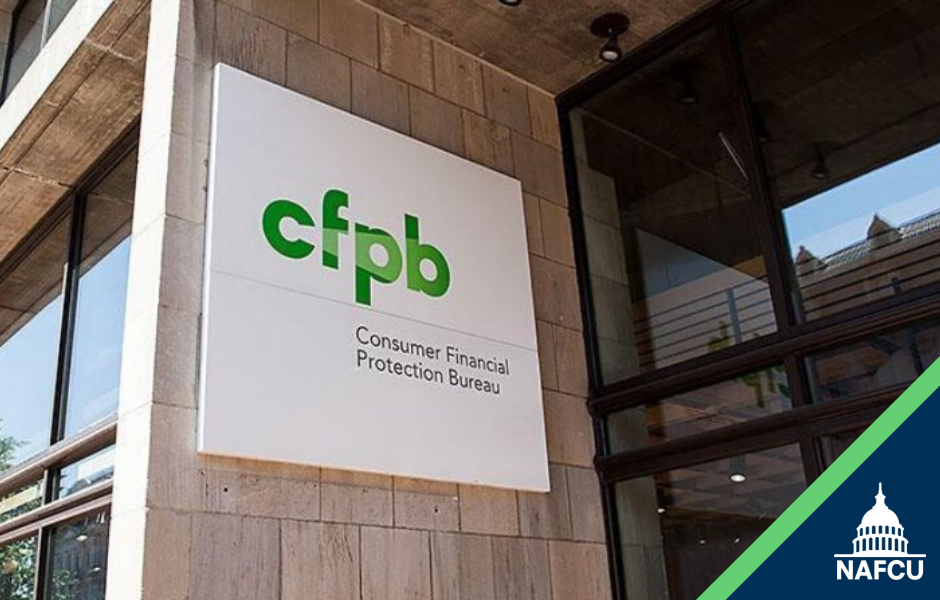Newsroom
District court rules against CFPB’s UDAAP authority
 Friday evening, a federal judge in Texas granted summary judgment in a case challenging the CFPB’s unfair, deceptive, or abusive acts or practices (UDAAP) exam manual. The plaintiffs in the case, including the American Bankers Association, U.S. Chamber of Commerce, and others, challenged that the bureau and its director, Rohit Chopra, unlawfully expanded the statutory definition of “unfairness” to include discrimination.
Friday evening, a federal judge in Texas granted summary judgment in a case challenging the CFPB’s unfair, deceptive, or abusive acts or practices (UDAAP) exam manual. The plaintiffs in the case, including the American Bankers Association, U.S. Chamber of Commerce, and others, challenged that the bureau and its director, Rohit Chopra, unlawfully expanded the statutory definition of “unfairness” to include discrimination.
The U.S. District Court for the Eastern District of Texas issued a final judgment against the CFPB’s March 2022 updated interpretation of its UDAAP authority. In protecting the plaintiffs’ members, the court further moved to prohibit the CFPB from “pursuing any examination, supervision, or enforcement action against any member of a plaintiff organization based on the CFPB’s interpretation of its UDAAP authority.” While the ruling applies only to members of the plaintiff organizations, it is a step in the right direction to impose proper checks and balances over the bureau.
NAFCU has long supported fair enforcement of non-discrimination laws, but continues to highlight that the bureau’s updated UDAAP authority sets a dangerous precedent and is another clear example of extreme regulatory overreach that was not intended by the Congress when the bureau was established in 2010 as part of the Dodd-Frank Act.
NAFCU strongly supports legislative improvements to change the structure of the CFPB from an unaccountable, single director to a bipartisan commission and to require the bureau to go through the congressional appropriations process to increase accountability and transparency. In July, NAFCU, CUNA, and the American Association of Credit Union Leagues (AACUL) filed a joint amicus brief urging the U.S. Supreme Court to uphold the U.S. Fifth Circuit Court of Appeals ruling that the CFPB’s funding structure is unconstitutional. Oral arguments for the case will be heard Oct. 3.
In a recent survey of NAFCU members on the CFPB and its effectiveness, results show that 94 percent of respondents overwhelmingly agree that Congress needs to reform the CFPB.
Share This
Related Resources
Add to Calendar 2024-06-26 14:00:00 2024-06-26 14:00:00 Gallagher Executive Compensation and Benefits Survey About the Webinar The webinar will share trends in executive pay increases, annual bonuses, and nonqualified benefit plans. Learn how to use the data charts as well as make this data actionable in order to improve your retention strategy. You’ll hear directly from the survey project manager on how to maximize the data points to gain a competitive edge in the market. Key findings on: Total compensation by asset size Nonqualified benefit plans Bonus targets and metrics Prerequisites Demographics Board expenses Watch On-Demand Web NAFCU digital@nafcu.org America/New_York public
Gallagher Executive Compensation and Benefits Survey
preferred partner
Gallagher
Webinar
Add to Calendar 2024-06-21 09:00:00 2024-06-21 09:00:00 2024 Mid-Year Fraud Review Listen On: Key Takeaways: [01:16] Check fraud continues to be rampant across the country. Card fraud is affecting everyone. [04:31] Counterfeit US passport cards are just another new toolbox in the bad actors’ toolbox. [07:21] Blocking the fallback is the only way to defeat counterfeit cards. [11:17] The best way is constant education to your members in as many channels as you can. [13:02] We are still seeing overdraft lawsuits. Make sure the programming you have at your credit union matches what you have displayed for the members. Web NAFCU digital@nafcu.org America/New_York public
2024 Mid-Year Fraud Review
Strategy & Growth, Consumer Lending
preferred partner
Allied Solutions
Podcast
Add to Calendar 2024-06-21 09:00:00 2024-06-21 09:00:00 The Evolving Role of the CISO in Credit Unions Listen On: Key Takeaways: [01:30] Being able to properly implement risk management decisions, especially in the cyber age we live in, is incredibly important so CISOs have a lot of challenges here. [02:27] Having a leader who can really communicate cyber risks and understand how ready that institution is to deal with cyber events is incredibly important. [05:36] We need to be talking about risk openly. We need to be documenting and really understanding what remediating risk looks like and how you do that strategically. [16:38] Governance, risk, compliance, and adherence to regulatory controls are all being looked at much more closely. You are also seeing other technology that is coming into the fold directly responsible for helping CISOs navigate those waters. [18:28] The reaction from the governing bodies is directly related to the needs of the position. They’re trying to help make sure that we are positioned in a way that gets us the most possibility of success, maturing our postures and protecting the institutions. Web NAFCU digital@nafcu.org America/New_York public
The Evolving Role of the CISO in Credit Unions
preferred partner
DefenseStorm
Podcast
Get daily updates.
Subscribe to NAFCU today.
